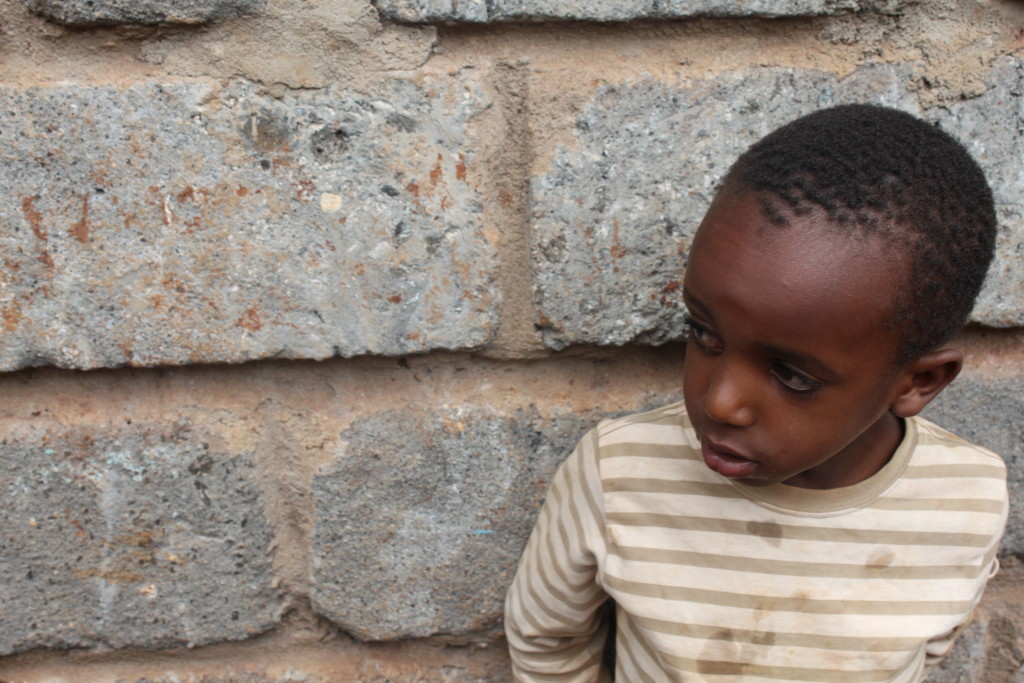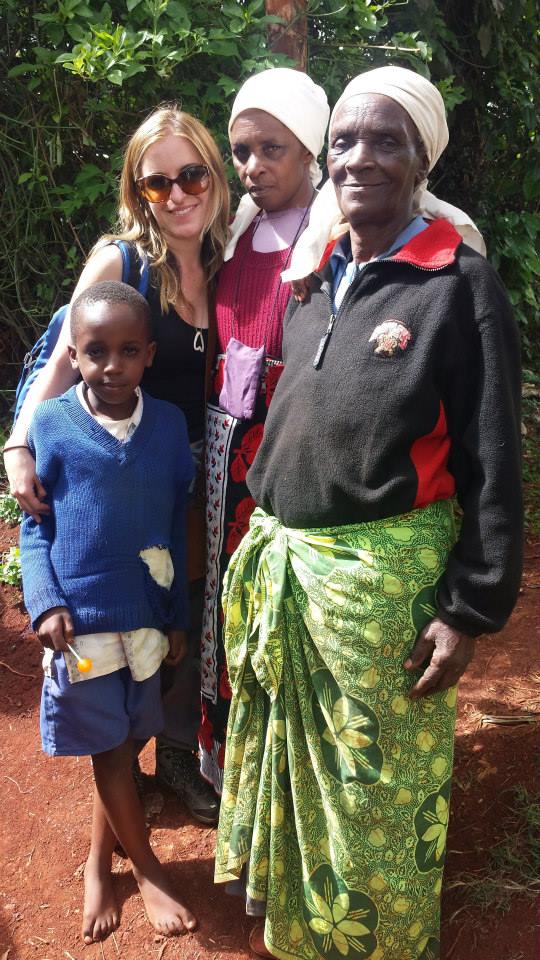Top 5 Things You Need to Know About Orphanages in Kenya
We have spent a lot of time in orphanages within Kenya, and there are a few key things we have learned.
1. Single Orphans vs. True/Double Orphans.
Unlike Western culture, a child in Kenya who only has one parent is sometimes referred to as an orphan- specifically, a single orphan. Children who have lost both parents, either through death or abandonment, are considered a true orphan, or are sometimes referred to as a double orphan. This distinction is important, because most of us would hear the word orphan and assume that a child does not have any parents. Often, this is not the case. A child may have a parent who is either unable to, or unwilling, to care for them. Some of Stahili’s children are single orphans, having come from abusive or neglected situations.

2. Orphanages in Kenya are Privately Run.
Most orphanages in Kenya are founded and run by individuals, not the government. Sadly, many people create these orphanages as a profitable business, using children as pawns to increase their own wealth. These individuals know that orphanages and images of poor orphans often times appeal to Westerners looking to donate or volunteer. For this reason, it is critical for volunteers and donors to check where their time and money are going. We have often heard volunteers say, “But the kids are smiling and so happy- nothing can be wrong here.” Not to be cynical, but they are kids. Of course they will be smiling. It is crucial that you spend a lot of time looking into the conditions and transparency of these organizations. Trust us, just because a child is smiling, doesn’t mean it’s a safe home.
3. There is No Oversight of Orphanages.
Coming from North America, we grew up with government agencies involved in ensuring that children’s homes followed strict guidelines. We grew up with the understanding that all complaints are taken seriously, that financial reports for nonprofits are monitored closely, and that children are visited often. In Kenya, government oversight is very little. You can register a nonprofit in one day and have an orphanage running in a matter of months. Children’s homes are visited by a local children’s officer a couple of times per year, but the visit is hardly investigative. Because of the ease of starting an orphanage and the lack of government involvement, the corruption continues to worsen.
4. Families Traditionally Don’t Like to Leave Their Children at an Orphanage.
Often, we get asked why guardians and grandparents were willing to leave their children at the orphanage if they knew the director was not a good person and the home wasn’t run properly. If they hated it so much, why would they leave their children there? The answer is very simple- they had no other option. The poverty that most of these families face is crippling. If an 80 year old grandmother is left with three grandchildren because their mother passed away, and she has no job, no food and no help, what can she do? At the very least, the guardians know that their children are receiving food. Since Kenya does not provide government assistance to people living in poverty, the guardians leave their children at these orphanages so that the kids can at least receive food. They are usually promised an education as well. This is why many of our children ended up staying at the orphanage.

5. Orphanages in Kenya are in Poor Condition
Since many orphanages in Kenya are money machines for the owner, the actual care of the children gets pushed aside. Children often share beds and experience poor hygiene, poor education, lack of healthcare and lack of nutrition. If an orphanage looked good, people wouldn’t give money. In our experience with the orphanage that was home to Stahili’s children, the director could afford to fix many of these problems, however, he refused in order to bring in more money. He would leave a child with a rotted tooth or an open wound until a volunteer would agree to pay for it. He let a child go months without glasses, even though they are actually given for free at the hospital, in order to accrue donations.
While our points here do not apply to all orphanages, they rang true for our experiences. At the end of the day, we want to encourage donors and volunteers to really look into where they are spending their time and money in order to prevent supporting corrupt orphanages. The orphanage that Stahili’s children came from would never have lasted this long if it were not for donors giving a LOT of money and a LOT of time. Take the time to look into where you donate and don’t be afraid to ask questions; you have the chance to voice your opinion when a child may not.
And as they say in Kenya,
Nice Times!
Hannah, Laura & Michelle
3 Replies to “Top 5 Things You Need to Know About Orphanages in Kenya”
Comments are closed.
I grew up in an orphanage in kenya and some facts here are facts but most apply to the homes ran by individuals, maybe, mine was a Catholic ran institution and my relatives didn’t leave me there because of poverty, I joined the home because of them. It has been the best expirence of my life… They home is facing a lot of hardships today, since the main donor’s contract expired and so are most of the homes around or in kenya. If donors loose faith in the home, the bed sharing, the little food, the poor conditions and the security that these children get, no matter how little, is gone. Then they have to go back to their relatives where they are discriminated, molested and starved or take the easy way out : join a gang and get shot at a very young age. These homes might not be perfect, not even half perfect, but it’s the only thing that these children can use to get out of poverty. Great article, I just felt you left out plenty of facts. As for the government involvement, the home I grew up in had over 50 kids rescued by the government and looked after by the home… In every step of the way the government, through the magistrate’s court and children’s office of nyahururu, kept a keen eye on how the children were being taken care of. Thank you.
I am a teacher from Kenya and worked in several schools that had donors.What this article has highlighted is very true.Some owners of orphanages are the immediate beneficiaries of donors funds that the kids.But I know very well that the donors are very wise on this matter.The only remedy is to do a thorough research on the type of orphanage to support before they start funding it. I know of key areas to investigate to ascertain an accountable and transparent orphanage based on the answers from the kids and the owner.But all in all donors should never stop supporting orphans in different countries if that is their calling but before they do that let them carry out a research before funding.Truth be told that there are very genuine, transparent orphanage that have touched lives and transformed destinies despite the existence of corrupt ones.
I agree with Hannah,Laura n Michelle. That is an eye opener to blind donors/volunteers.But this should not discourage them from getting right charity to help. What we only need to understand is that Kenya is not same level of Westerners. For poverty and extreme poverty in Africa led to this level. No parent or guardian can release his child or grandchild to even a children home that meets all the requirements because a home cannot substitute ancestral home. This only happens when there is no means of raising up the child and a home remains only hope.I believe in this; when you do de-service to poor ,orphans or destitute/vulnerable people taking advantage of them you invite early family curse to your family as a whole.I would like to encourage donors/sponsors/volunteers be doing unscheduled visits n mingle with children , play with them in an outing and get info from them. Children dont know how to hide the truth of the matter, they will tell the truth. On matter of poor facilities , cant generalise it, it depends on the funding, n running costs might have skyrocked n first things done first . for a project in a children home funded by donors , accountability n transparency is a must. if donors learn that they have been conned , should take legal action according to the law. Such donors should abandon that charity and keenly look for a deserving charity to put their money n time into good use for needy children. I have a silimar home which I turned my home into extending love to vulnerable. They grow together with my children n now waiting for covid to cool down n fully establish it a charity . I do local mobilisation of resources n from well wishers and help these children. I trust God will make a way to find good partners who have children at heart will go this journey together. We volunteer for everything, we sacrifice everything we earn for children to live. Thank you so much for all coments. Many children are suffering pls find them and help where you can with what you have. we are in Mukuru slums Nairobi Kenya.